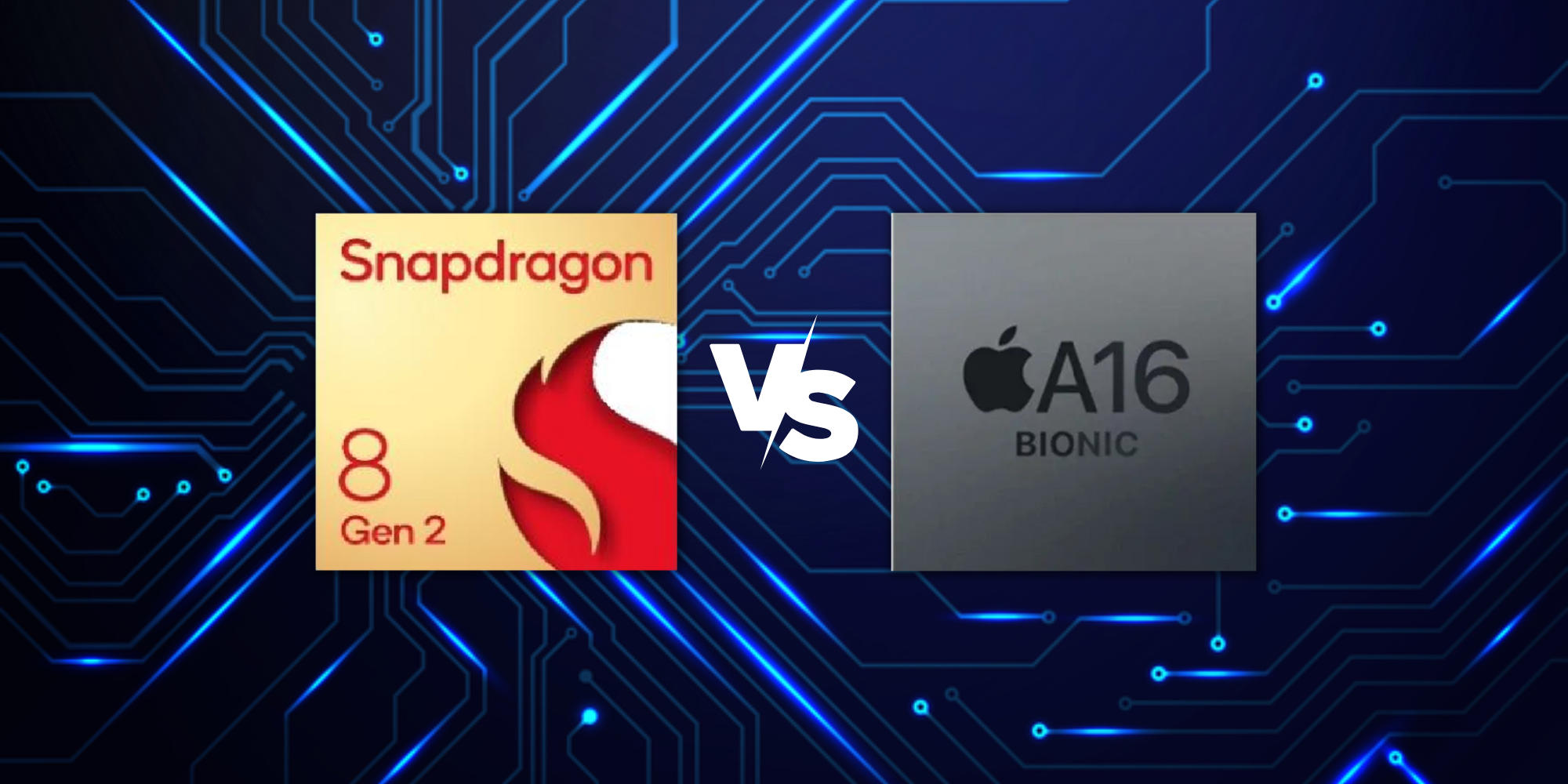Qualcomm has announced the Snapdragon 8 Gen 2 as its next flagship processor for Android smartphones, but is it good enough to compete with Apple's A16 Bionic? The first smartphones powered by the Snapdragon 8 Gen 2 will be available this year. However, if buyers are looking to invest in the best smartphone in terms of performance, they might have to think twice before getting one with the Snapdragon 8 Gen 2.
Over the years, Apple's A-series chipsets have consistently outperformed the best Snapdragon processors. While users might be unable to notice the difference between the processors in daily usage, the differences become apparent during intensive tasks such as gaming or video editing. In 2021, Apple's A15 Bionic came out on top in comparison with the Snapdragon 8 Gen 1 in terms of maximum power and efficiency.
Both the Qualcomm Snapdragon 8 Gen 2 and Apple A16 Bionic use TSMC's 4nm fabrication technology. However, while the Snapdragon 8 Gen 2 comes with an octa-core CPU, the A16 Bionic on the iPhone 14 Pro and iPhone 14 Pro Max has a hexa-core CPU. The Snapdragon 8 Gen 2 has one prime core (3.2GHz), four performance cores (2.8GHz), and three efficiency cores (2.0GHz). On the other hand, the A16 Bionic has two high-performance cores clocked at 4.36GHz and four high-efficiency cores clocked at 2.02 GHz. To accompany the CPU, the latest chipset from Qualcomm comes with an Adreno 740 GPU with hardware-accelerated ray tracing, which offers about 25 percent faster graphics rendering than its predecessor, per Qualcomm. On the other hand, the A16 Bionic comes with Apple's five-core GPU.
Snapdragon 8 Gen 2 Disappoints On Geekbench
However, even though the Snapdragon 8 Gen 2 offers 35 percent faster performance than its predecessor, early benchmarks suggest that it doesn't catch up with Apple's A16 Bionic. The Snapdragon 8 Gen 2 was spotted on benchmarking platform Geekbench via an unreleased Vivo smartphone. The new Snapdragon processor scores 1,483 points in the single-core and 4,709 points in the multi-core performance test. These numbers fall short of the A16 Bionic's single-core score of 1,874 points and a multi-core score of 5,372 points. Even the A15 Bionic, released in 2021, scores 1,709 in the single-core Geekbench performance test, which is more than Qualcomm's latest chip.
Although benchmark scores do not reflect the real-life performance of smartphones, they are an indicator of a smartphone's peak performance. Therefore, even though the Snapdragon 8 Gen 2 is better than the Snapdragon 8 Gen 1, smartphones powered by the chip won't be as powerful as the iPhone 14 Pro and iPhone 14 Pro Max. On the bright side, the Snapdragon 8 Gen 2 is currently the most powerful processor for Android smartphones, and will be the chipset of choice for many new flagships. Most notably, Samsung will use the Snapdragon 8 Gen 2 for its Galaxy S23 series in 2023.


